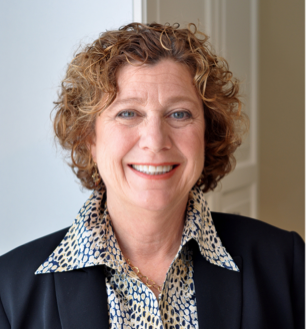Guest Blogger: Dr. Becki Cohn-Vargas
We are experiencing a deep conflict that is being fought in our schools with five states passing bills to ban "critical race theory and divisive diversity training" and 20 more states working on similar bills. We need to counter the lies about race and trans people and efforts to shut down dialogue and learning the truth about history. The other side is highly organized, orchestrating efforts to take over US school boards. We need to write, engage in dialogue, and support one another — not allow the fear-mongering to hold educators back, particularly reaching those who might be silenced out of fear.
Today, my blog Creating Identity Safe Spaces for Adults and Children of All Ages was published by Sixty and Me, a site for women in their sixties with thousands of readers. I talked about why we should not ignore differences, how we need to learn from history to upend inequities, and how it is important to open dialogue.
NIOT is reprinting the blog here for our communities.
 |
|
Photo credit: Andrea Piacquadio from Pexels
|
When I was growing up, we used to have a saying translated from Yiddish, “What am I, chopped liver?” We said it whenever any of us felt left out of the group in some way.
Many Faces of Identity
In college, I studied social psychology and learned that humans crave a sense of belonging and inclusion. We not only want to be acknowledged and accepted as part of a group, but we want to be accepted for who we are. We each have many social identities – nationality, race, religion, social class, age, profession, hobbies, etc.
Some of them are immediately visible while others lie hidden below the surface – tennis pro, cancer survivor, artist… One thing social psychologists have learned is that when aspects of our identity are ignored when we feel stereotyped, and when we feel judged, that is when we feel like “chopped liver.”
Identity Safety Means What?
I have dedicated my life to promoting what is known as identity safety. It means that we can create spaces where people can be themselves, where their identities are welcomed and accepted, and where they also accept others, not with their identities ignored, but where they do not need to leave their identities at the door.
My three books on identity safe classrooms and schools are for educators, but I have come to realize that we all need identity safe spaces.
What Is Your Identity?
I also have come to understand that the first step is self-reflection on the many aspects of our own identities. If we have not thought about the influences that have made us who we are or if we cannot accept ourselves, we probably will have a hard time accepting and creating belonging for others.
Also, if we cannot come to terms with what has hurt us and our families as well as others from our backgrounds, we will continue to perpetuate hurt against others, often without even realizing it.
When Martin Luther King said, “I have a dream that my four little children will one day live in a nation where they will not be judged by the color of their skin, but by the content of their character,” he aspired to a time when skin color did not matter. Yet, he recognized that simply by ignoring differences, the path to that time would never occur.
Name the Problems
With his leadership and the dedication of many others of all races, we are moving in that direction, but we still have a long way to go. And the only way to get there is to name the problems.
Across our planet, there is an unlevel playing field where Black people have higher infant mortality rates and die younger, where they earn less than white people doing the same jobs and are punished more harshly by justice systems.
Black and Latino students are suspended and expelled at higher rates – and these are only a few inequities in the US and many other countries. Unless these problems are identified and discussed, we will never be able to resolve them.
Dialogue Will Lead to Solutions
MLK also said, “The function of education is to teach one to think intensively and to think critically. Intelligence plus character – that is the goal of true education.” His point is that we need to teach our children to critically analyze the world they live in and to learn from our history, not hide it.
Adults also need venues for dialogue. Democracy is built on the free sharing of ideas. Sometimes these conversations may be uncomfortable or grow tense, but in recent years, more and more people are having them. And when they get past the hard moments, understanding grows.
People are also learning how to speak to each other. We have become aware that pointing fingers or blaming each other will not change anything. But when we look at the actual policies that perpetuate the inequities described above, when we each look at our part (even if it is simply to say nothing to stop them), then we can develop solutions.
MLK encouraged us to speak to each other, saying, “People fail to get along because they fear each other; they fear each other because they don’t know each other; they don’t know each other because they have not communicated with each other.”
Zero-Sum vs. Win-Win
An equitable society is not a zero-sum game where when one group starts winning, the other group loses. Heather McGhee, author of The Sum of Us: What Racism Costs Everyone and How We Can Prosper Together, writes:
“Everywhere I went, I found that the people who had replaced the zero-sum with a new formula of cross-racial solidarity had found the key to unlocking what I began to call a ‘Solidarity Dividend’, from higher wages to cleaner air, made possible through collective action.”
While the path is long and hard, there is much to be hopeful about, but we must continue to have those hard conversations in our classrooms and our communities. We can create identity safe spaces for people of all backgrounds, learn from history and forge a new one together.
Have you ever been in a situation where you felt your identity was not safe? Was there a time where you needed to check your identity ‘at the door’ and pretend to be somebody you are not in order to be included? Do you know someone who is in that situation right now? What are you doing about it? What do you think can be done to make our world safe for people with various identity backgrounds? Please share your thoughts in the comments.
 Becki Cohn-Vargas, Ed.D, is the former director of Not In Our Schools and the co-author of three books on identity safe schools where students of all backgrounds flourish. Becki and her husband live in the San Francisco Bay Area and have three adult children and one grandchild.
Becki Cohn-Vargas, Ed.D, is the former director of Not In Our Schools and the co-author of three books on identity safe schools where students of all backgrounds flourish. Becki and her husband live in the San Francisco Bay Area and have three adult children and one grandchild.
Photo credit: Andrea Piacquadio from Pexels